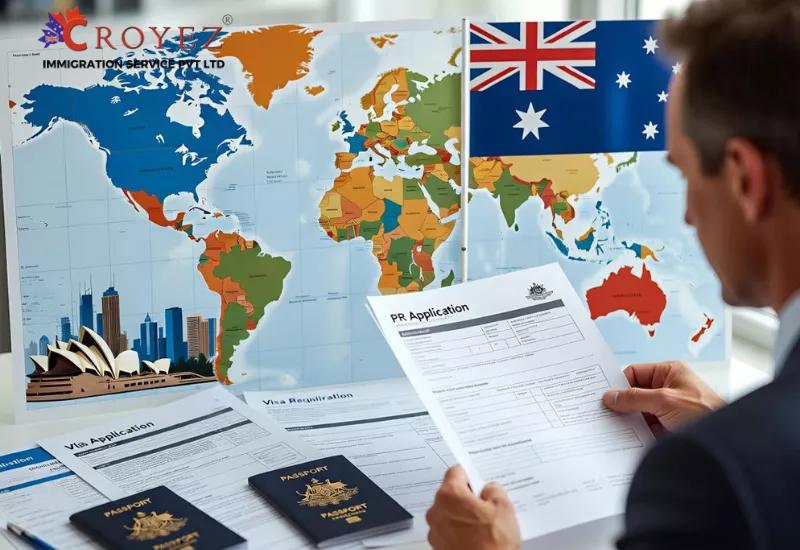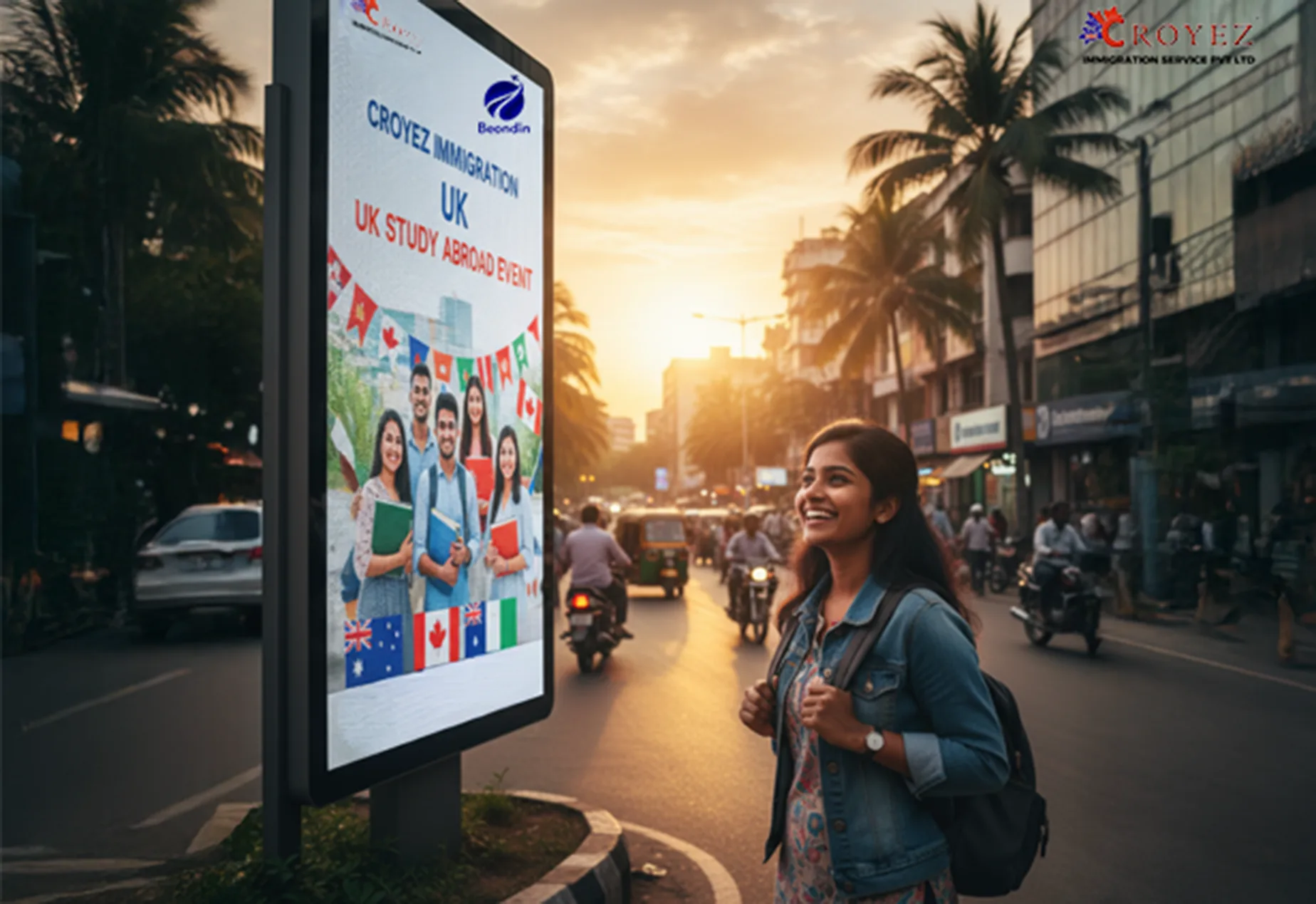Canada is known for its accommodating approach towards immigrants, making it a popular choice for foreign workers looking for fresh possibilities. If you're thinking about travelling to Canada for employment, you should grasp the qualifications and procedures for acquiring a Canada work visa. This thorough guide will give you all of the information you need to make your travel go as smoothly as possible.
Understanding Canada Work Visa
Canada provides a variety of Canada work visas for Indians, each geared to certain sorts of jobs and conditions, governed by specific Canadian work permit rules. The most popular kinds are:
- Temporary Foreign Worker Program (TFWP): With this visa, Canadian firms may recruit foreign workers to address temporary labour shortages.
- The International Mobility Program (IMP): It allows firms to engage overseas workers without requiring a Labour Market Impact Assessment (LMIA). This is often used for work permits under international trade agreements.
- Open Work visa: This form of visa permits workers to work for any company in Canada and is usually only offered to certain categories, such as spouses of skilled workers or international students.
Who needs a work visa?
Most foreign nationals must get a work visa to work in Canada. However, there are certain exceptions. For example:
- US citizens working in Canada for brief periods of time.
- Individuals involved in specialised activities, such as business visitors or athletes.
Eligibility Requirements for a Canadian Work Visa
To apply for a visa, you must fulfil the following eligibility canada work visa requirements: General Canada work visa requirements
- Work Offer: You must have a genuine work offer from a Canadian company. In most situations, the business must file for a Labour Market Impact Assessment (LMIA) to show that there are no Canadian citizens or permanent residents available to fill the post.
- Proof of Qualifications: You must demonstrate that you have the necessary abilities, education, and work experience for the position. This might include degrees, certifications, certificates, and references from past companies.
- Language competence: Depending on the work and visa type, you may be required to show competence in English or French using standardised examinations such as IELTS or CELPIP for English and TEF for French.
- Medical checkup: In certain instances, you may need to get a medical checkup to confirm your excellent health.
- Background Check: You must present a police clearance certificate to indicate that you have no criminal past.
Additional Considerations
- Employers must get a positive LMIA to recruit foreign workers under the TFWP, proving that the employment would not adversely influence the Canadian labour market.
- For the IMP: Applicants often fall within particular categories, such as international treaties (such as NAFTA), and the LMIA requirement may be disregarded.
- Eligibility for Open Work Permits frequently covers certain categories, such as spouses of skilled workers or overseas students.
The Application Process
The canada work permit visa process may be extensive and needs close attention to the following steps: Steps to Apply for a Work Visa: Get a job offer in Canada work permit visa process. Start by getting a job offer from a Canadian firm. If an LMIA is needed, ensure that they receive it.
- Gather documentation: Compile all relevant papers, such as your employment offer letter, evidence of credentials, language test results, medical exam results (if applicable), and a police clearance certificate.
- Complete the application form: Complete the relevant work visa application form. Depending on your status, you may apply online via the Immigration, Refugees, and Citizenship Canada (IRCC) website or paper application.
- Pay the Application charge: The charge varies depending on the kind of work visa you're seeking. Keep your payment receipt since you will need it to complete your application.
- Submit Your Application: Send your completed application for Canada work visa for Indians together with any relevant paperwork. If you apply online, make sure all of your paperwork is submitted accurately.
Required Documentation Here's a list of important papers you could need:
- Valid passport
- Job offer letter from a Canadian firm.
- Proof of credentials (degrees and certificates)
- Language test results, including LMIA (if applicable).
- Medical exam findings (if needed)
- Police clearance certificate.
Post-Application Steps
Once you've filed your application for Canada work visa for Indians, there are a few things to remember:
Processing Times
Processing dates for work visa applications may vary greatly depending on the visa type, the applicant's home country, and the amount of applications being processed. On average, it might take between a few weeks and many months. The IRCC website provides current processing timeframes.
What to Do After Approval?
Once your work visa application is granted, you will be sent a Letter of Introduction (LOI) and, if necessary, a work permit. Here are the following steps:
- Prepare for Arrival: Make your travel plans to Canada. Familiarise yourself with Canadian culture, legislation, and worker rights.
- Show Your papers at Entry: When you arrive in Canada, show your LOI and any other required papers to the border services officer, who will grant your work permit.
- Settling into Your New Job: Once in Canada, be sure you understand your job rights and the legislation that governs your work.
Tips for Successful Work Visa Applications
To improve your chances of a successful work visa application, consider the following recommendations.
- Be thorough: Ensure that all documentation is complete and correct. Your application may be delayed if you provide incomplete information.
- Instructions: Carefully read and follow the IRCC's application instructions. Certain visa kinds may have special criteria.
- Seek Professional Assistance: If you're uncertain about the procedure, consider contacting an immigration counsellor. Their knowledge can help speed up your application.
- Stay Up to Date: Keep track of any changes in immigration regulations that may affect your application.
By being vigilant and aggressive, you may increase your chances of obtaining a Canada work visa.
Conclusion
Obtaining a work visa for Canada may be a difficult procedure, but with proper preparation and awareness of the criteria, you can complete it successfully. Remember to get a genuine employment offer, collect the relevant papers, and remain up to date on the application process. As you begin this path, consider contacting Canada consultancy in Coimbatore, like Croyez Immigration, who may provide personalised guidance and ensure that your application satisfies all standards of canadian work permit rules. With patience and determination, you may make your goal of working in Canada come true. Whether you're looking for temporary work or a long-term career, Canada's broad labour market provides several chances for overseas workers. Good luck! For personalized assistance with your Canada work visa application, Reach out to Croyez Immigration today. Our expert team is here to guide you every step of the way!
FAQs
1. What's the difference between a Temporary Foreign Worker Program (TFWP) and an International Mobility Programme (IMP) work visa?
Answer: The TFWP requires companies to acquire a Labour Market Impact Assessment (LMIA) to demonstrate that employing a foreign worker would not harm the Canadian labour market. The IMP, on the other hand, often permits firms to hire without an LMIA, as per international accords such as NAFTA.
2. Can I get a Canada Work Visa without a job offer?
Answer: In general, to apply for a Canada Work Visa, you must have a legitimate employment offer. Some candidates, such as those qualifying for an Open Work Permit, may be excused from the need for a job offer, such as spouses of skilled workers or overseas students.
3. What is an LMIA and why does it matter?
Answer: The Labour Market Impact Assessment (LMIA) is a document that Canadian firms must get to demonstrate that employing a foreign worker would not harm Canadian citizens or permanent residents. It is necessary for the majority of work visas under the TFWP.
4. How long does it take to process a Canada Work Visa?
Answer: Processing timeframes vary according to the kind of work visa, your home country, and the number of applicants. On average, it might take between a few weeks and many months. The IRCC website provides current processing timeframes.
5. Can I transfer jobs after getting a Canada Work Visa?
Answer: It is dependent on the sort of work visa you have. A closed work permit binds you to one employer, while an open work permit permits you to freely swap jobs.





